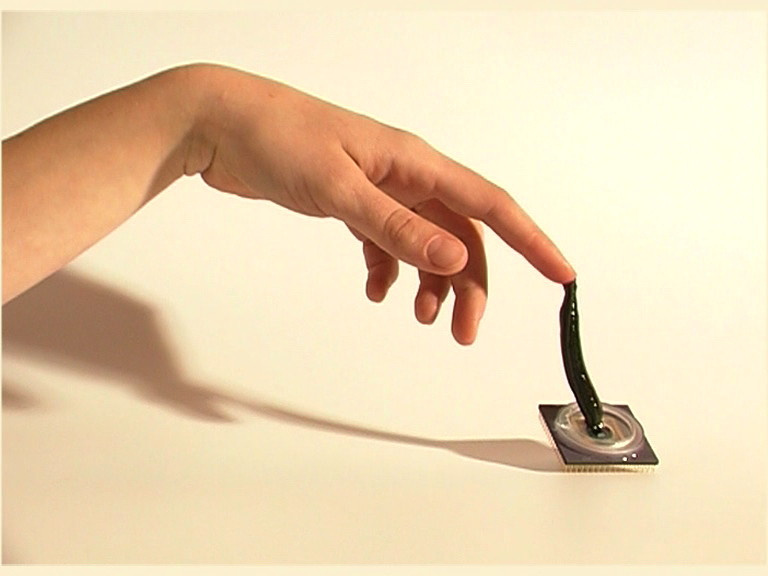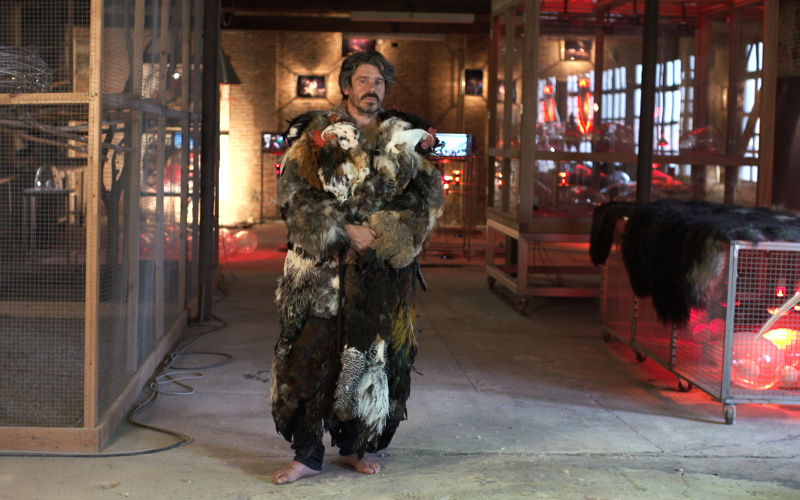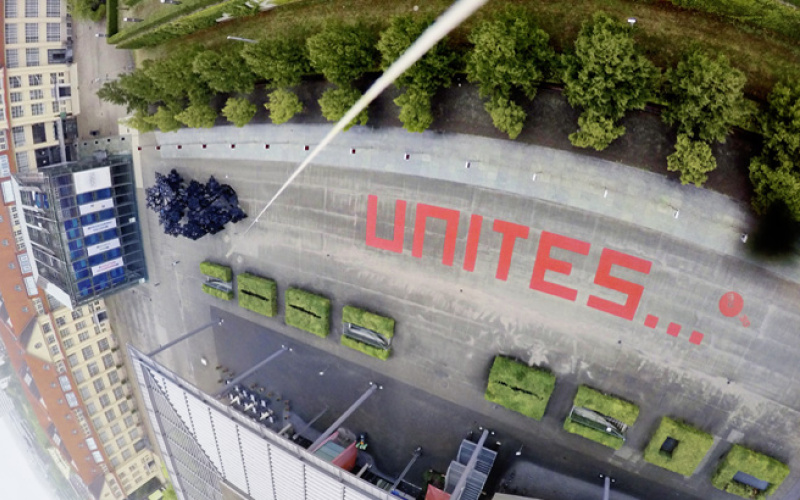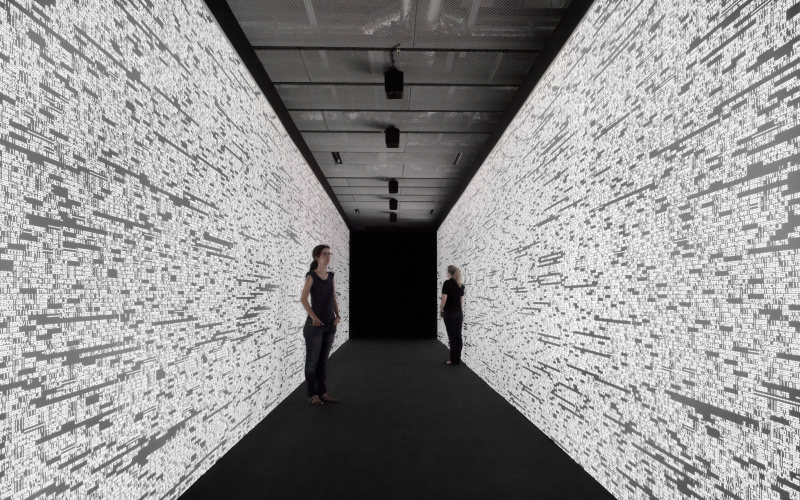A friendly parasite
Dorcas Müller’s »The Creation of Neuros« in the video programme of Women's Perspectives 2015
BY CLAUDIA GEHRIG
The video begins with the following set-up: A hand protrudes from the left half of the picture with an outstretched index finger to a worm-like being, which is connected to a ringed metal plate. What is concealed behind?
The glossy black worm attaches itself to the finger and starts to suck itself full like a wave. After brief observation, it becomes clear to the observer that it is a leech, which is gradually getting bigger and heavier, which changes the angle of the hand’s position. The whirring noise level in the background and the lighting of the scene create the atmosphere of a test set-up.
Art of creation with uncertain outcome
Actually, the video by Dorcas Müller is the artistic result of months of following and observing the neurochip research at the Max-Planck-Institut in Martinsried near Munich. Due to their size, the cells of the leech are particularly well suited to acting as organic interfaces, which are applied to computer chips to observe their properties as control modules.
Dorcas Müller varies this test set-up and combines the neurochip with the »creation chain« of index finger - leech - neurochip. The connoted image of the finger of creation is thus deceiving: The hand of creation acts not as an initial spark of the spirit, but as a food source of the organic control module that becomes saturated. The artist becomes the parasite.
Süddeutsche Zeitung 2001
»From the informal, not to mention frivolous relationship with the holy truths of natural science«
As a result of her research visit at the Max-Planck-Institut, a series of videos and photographs were created by the artist. She was initially there as an observer, then as a commentating and communicating guest, who was able to connect artistic perceptions to the research environment, which extends far beyond the illustrating.
In particular, she triggered the organic interfaces to anchor the human presence in the test set-up. Just like in her video »Wie der tote Hase dem toten Beuys den Menschen erklärt« [How the dead Hare explains Human Beings to the dead Beuys] of 2004. In this, she addresses the famous performance of Joseph Beuys in »Wie man dem toten Hasen die Bilder erklärt« [How you explain Pictures to a dead Hare], in relation to the retina research with the eye of a dead rabbit.
Dorcas Müller’s works find themselves in the exhibition context of works which represent an interface between art and science. She inspires mutual communication and unusual margins and visions. As she says herself, these show that scientific models are excerpts of a reality which constantly astounds, but whose thought structure and origin cannot be conceived anywhere but in nature itself.
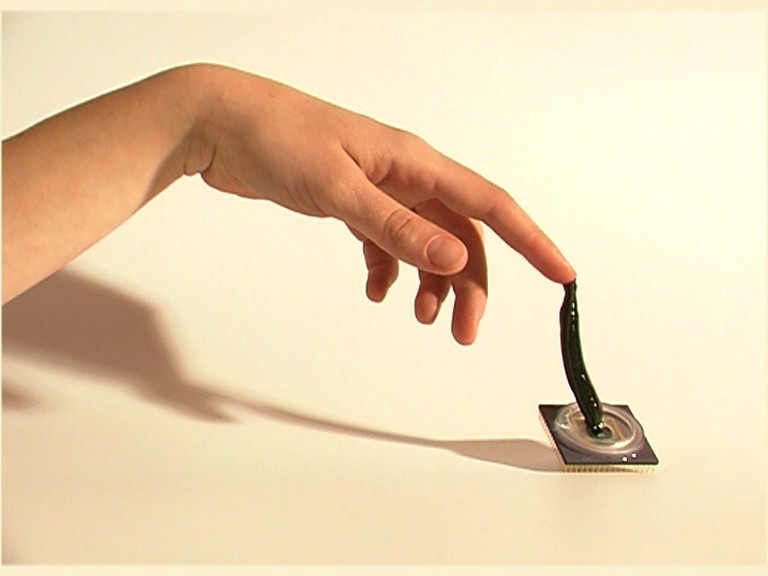
The Creation of Neuros
About the artist
Dorcas Müller (1973) studied media art at the University of Design Karlsruhe with Professor Ulay (Uwe Laysiepen). Among the recognition that she has received for her artwork have been stipends from the Kunstfonds Bonn and the Körber Foundation, Germany.
Category
Related Tags
News Category
- take a look… behind the scenes of ZKM
